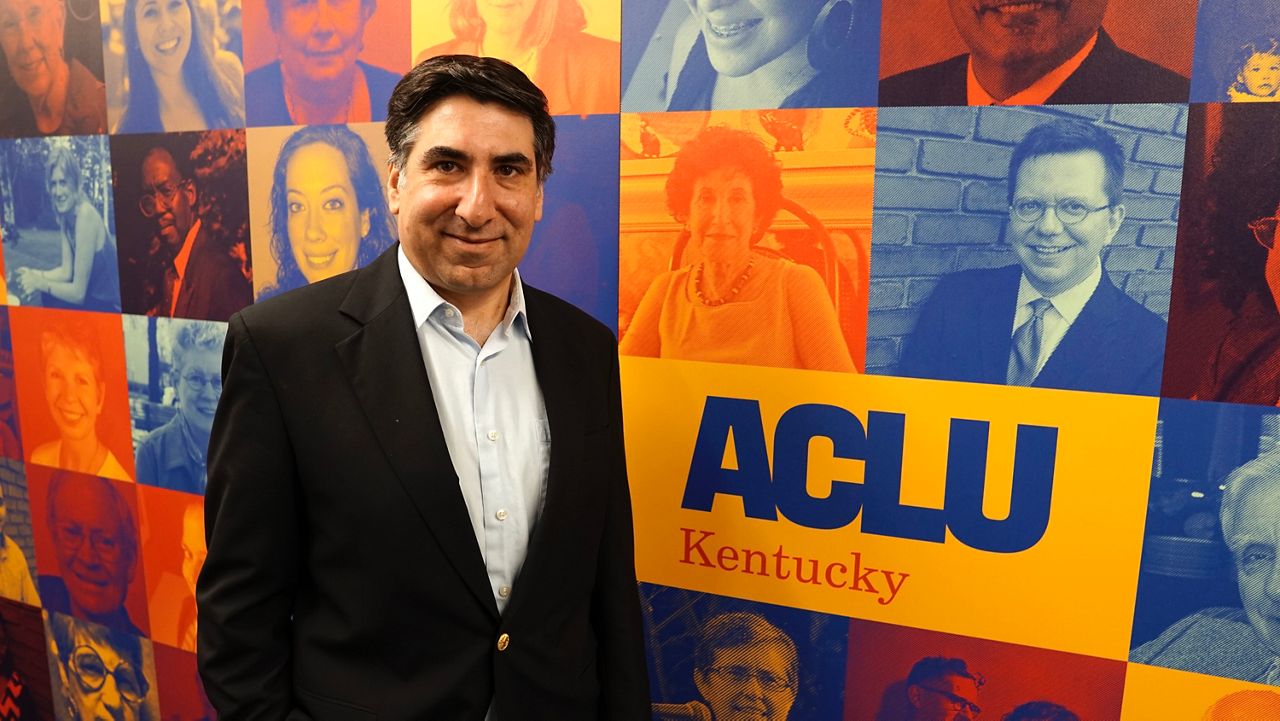LOUISVILLE, Ky. — Wednesday the U.S. Supreme Court is scheduled to hear a Tennessee case concerning whether the state can ban minors from accessing gender transition care. The high court’s decision could have national effects, including on a similar ban here in Kentucky.
In 2023, states like Tennessee enacted bans on certain medical treatments like puberty blockers and hormone therapy. Barring transgender youth from accessing them. Kentucky’s Senate Bill 150 blocked doctors from prescribing such treatments last year.
Kentucky’s ACLU chapter sued to keep SB 150 from taking effect.
A federal appeals court later looked at Kentucky and Tennessee’s laws, eventually ruling they could be implemented.
Afterwards, the Supreme Court agreed to take up the case; United States v. Skrmetti.
“Tomorrow, the Department of Justice will be arguing in front of the Supreme Court to ask them to find that laws banning medically necessary care for transgender youth violate the equal protection clause of the United States Constitution,” said Corey Shapiro, legal director for the ACLU of Kentucky.
Shapiro hopes the Supreme Court will find these laws unconstitutional and agree laws like this, concerning a person’s sex, should have a higher level of scrutiny.

“In this case, the appellate decision that they’re reviewing, actually implicates the Kentucky law as well, even though what they, the Supreme Court is looking at is whether the appellate court got it right with respect to the Tennessee law only,” Shapiro explained.
In June Kentucky’s Attorney General Russell Coleman, R-Kentucky, told Spectrum News 1 in a statement:
“As parents and public officials, we have a responsibility to protect our children from harm. That’s exactly what legislators in Kentucky and Tennessee did, creating commonsense measures to safeguard minors from life-altering medical procedures. We will closely follow this case and look forward to supporting our colleagues in Tennessee.”
Six of the nine Supreme Court justices are conservative. Still, Shapiro is hopeful they will overturn the appeal court’s decision.
“We have some optimism that Justice [Neil] Gorsuch and Justice [John] Roberts will agree that if you discriminate on the basis of sex in the context of employment discrimination against transgender people, that that is on the basis of sex, and that the same thing should apply when you’re looking at it in the context of the equal protection clause,” Shapiro said.
As for a decision by the Supreme Court, that could still be months away.
Shapiro says oftentimes controversial rulings are released around the end of the Supreme Court’s term. Meaning a decision could come as late as June.



